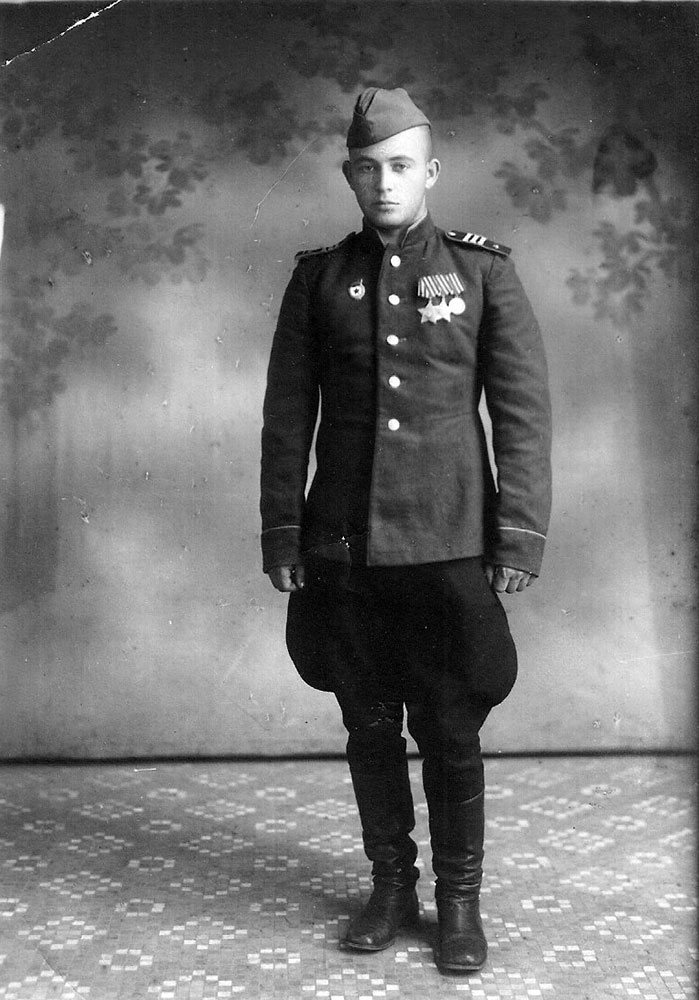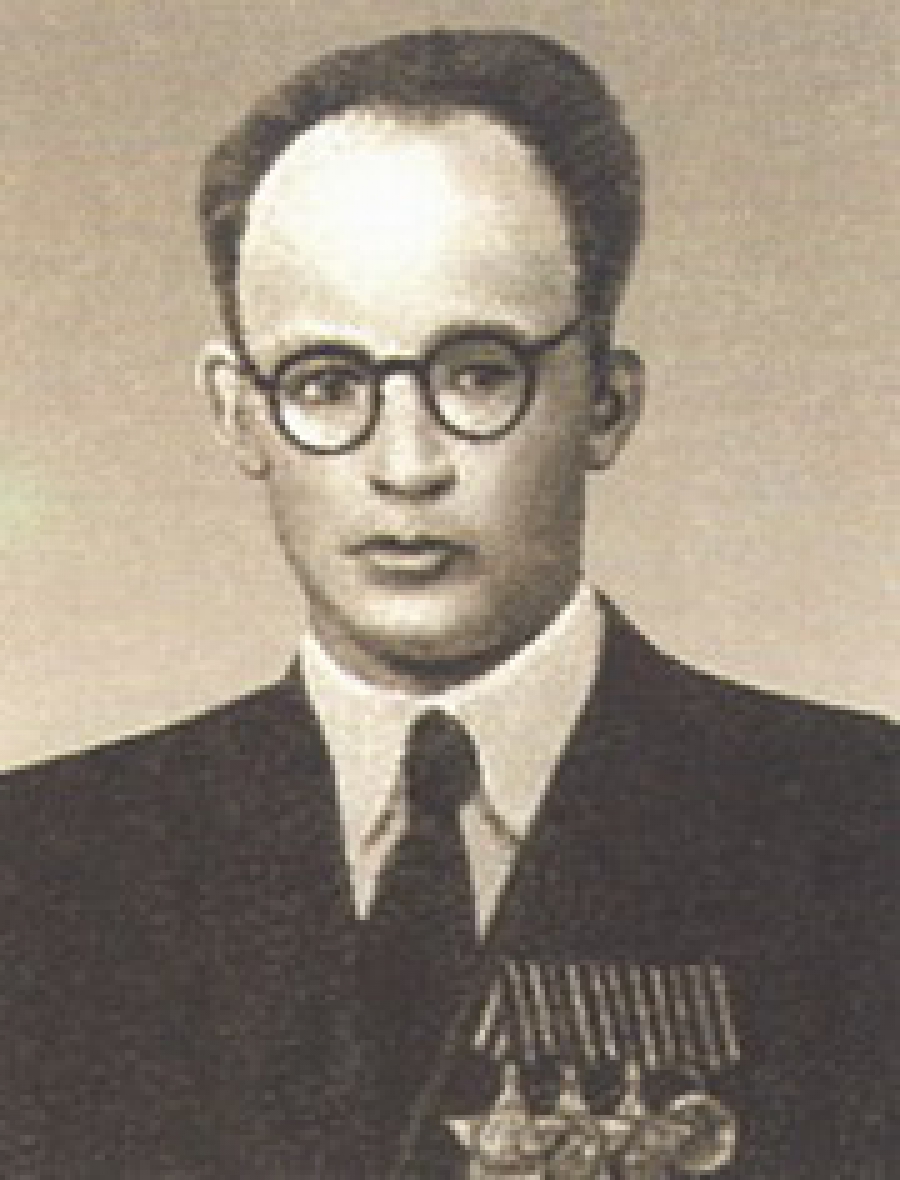Efim Minkin was born in 1922 in Mogilev in Belorussia. He was the oldest child in the family (he had two brothers and a sister). His father worked as a painter and his mother was a housewife. In 1926, the family moved to Baku but returned to Mogilev in 1936. In 1939, Efim graduated from high school with honors and was allowed to enroll at the Moscow Institute of Environmental Engineering without taking an entrance examination. By the beginning of the Soviet-German war in June 1941, Efim had completed two years of study at the institute.
Together with other students, Efim was mobilized to dig anti-tank trenches near Ielnia in Smolensk District. After that, the students were transferred from the Institute of Environmental Engineering to the military department of the Moscow Hydro-meteorological Institute. The latter was evacuated to Leninabad in Tajikistan. Although Efim suffered from severe myopia, he appealed to Moscow military authorities to be sent to the front. As a result, he was drafted as a mortar gunner and sent to Cheliabinsk Region (in the Urals). In the fall of 1942, Efim was sent to the front at Stalingrad, where he was assigned to intelligence work in the 138th Infantry Division with the rank of corporal. In one battle, he was seriously wounded in both legs and shell-shocked. Although after his release from hospital he had the opportunity to be demobilized, he insisted on returning to his combat unit in May 1943.
Efim Minkin was awarded the Order of Glory, 3rd Class, in October 1944 for an operation in Ukraine, when the mechanized brigade under his command halted an enemy convoy and captured 11 Germans.
In February 1945, Corporal Minkin was awarded the Order of Glory, 2nd Class, for leading a unit behind enemy lines and entering Šahy (now in Slovakia) to obtain important information and then returning safely to the Soviet side.
In 1945, Efim Minkin participated in fighting against the Japanese, after which he was discharged and returned to Moscow. As result of wounds he had suffered, Minkin became blind in one eye.
After the end of the war, in May 1946, Minkin was awarded the Order of Glory, 1st Class, for a military operation conducted in March 30 and April 1, 1945 in Austria, when a group of scouts that included Minkin killed dozens of enemy soldiers and took many prisoners. He was also awarded the Order of the Patriotic War, 1st Class, and several medals.
In 1950, he graduated from the State Geological Prospecting Institute. Then he worked for twenty years as a leading researcher at a hydrological research institute.
In 1992, along with his family, Efim Minkin emigrated from the USSR and settled in Germany, where he died in 2011.
Two selections from Minkin's memoir
- "I received my third Order of Glory after the war was over. Of course, I was recommended for it during the war but it took some time for it to be approved [the implication is that antisemitism played a role in the delay]… There exists a list of honors. There are, of course, many lies there: the number of those [enemies] killed is inflated and other such things. But that, in general, is the way things were written" (article by A. Minkin, "Vecher nashei rodiny", in Moskovskii Komsomolets of Feb. 8, 2002)
- "Usually no one gave me any trouble. I was quite good at boxing, having trained for competition in Moscow. Only once in my life was I called vile names. That was in 1945 at the Victory parade. We were training at Sokolniki. Selected men had been collected [representing fighters] from all the fronts. Somebody caught sight of me and for some reason called out: "Hey, Abram!" I went up to him and knocked him down. He just lay there, afraid to get up. Everyone kept their mouths shut and I walked away…." [1]








